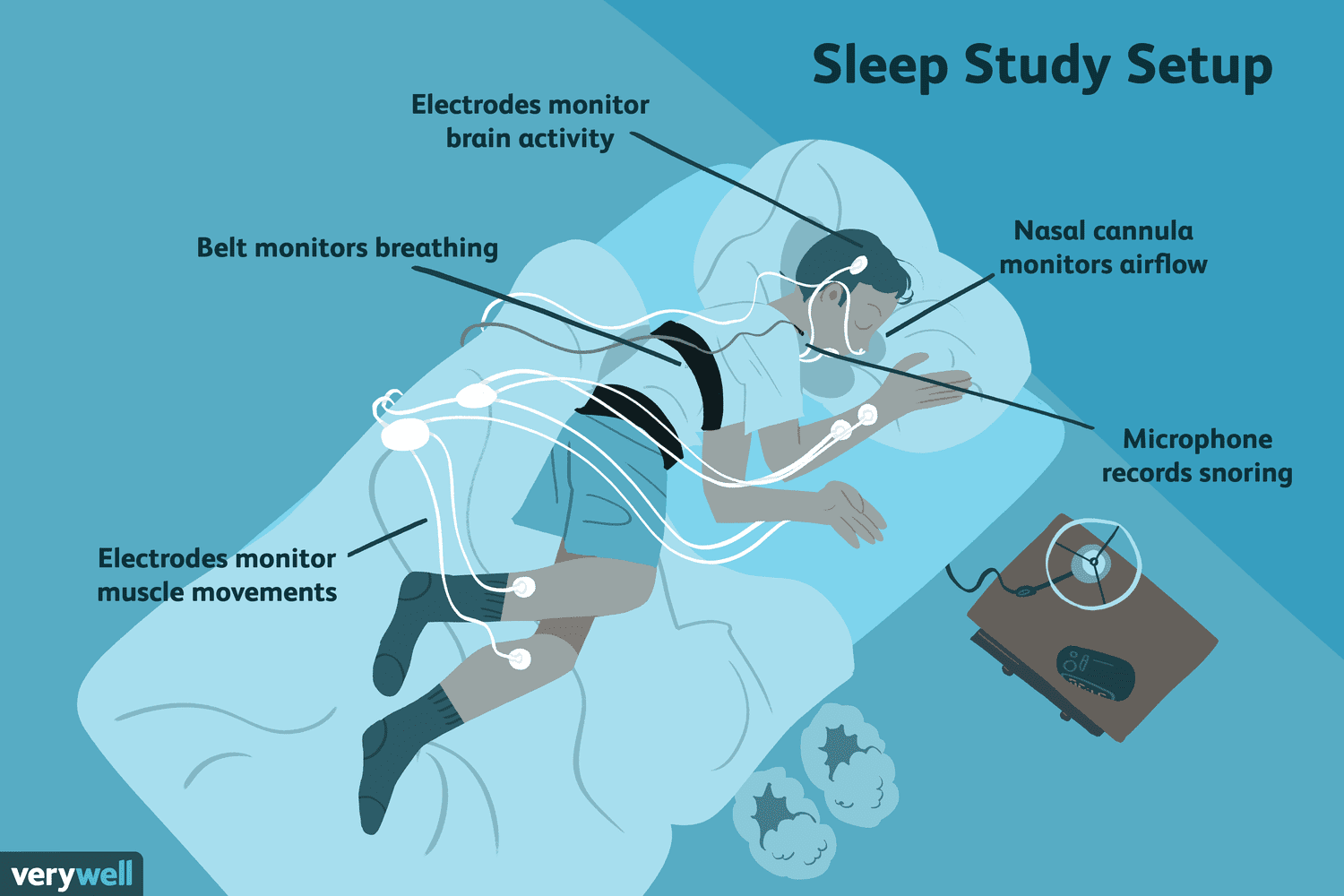Sleep Study

Sleep Study Test (Polysomnography)
A sleep study, also known as polysomnography (PSG), is a comprehensive diagnostic test used to evaluate sleep patterns and diagnose sleep disorders. It involves monitoring various physiological parameters during sleep to assess brain activity, heart rate, breathing patterns, and oxygen levels. Here’s an overview of the sleep study test and its clinical applications:
How Sleep Study Works
Polysomnography (PSG) typically takes place in a sleep laboratory or specialized clinic equipped with monitoring equipment. During the test:
Electroencephalography (EEG):
Electrodes are placed on the scalp to record brain wave activity, assessing sleep stages and detecting abnormalities like sleep apnea or parasomnias.
Electrooculography (EOG) and Electromyography (EMG):
EOG measures eye movements to identify rapid eye movement (REM) sleep, while EMG records muscle activity to detect movements such as leg jerks or periodic limb movements.
Respiratory Monitoring:
Sensors monitor airflow through the nose and mouth, as well as chest and abdominal movements to detect respiratory events like apneas (complete cessation of airflow) and hypopneas (partial reduction of airflow).
Cardiac Monitoring:
Electrodes monitor heart rate and rhythm to assess cardiovascular changes during sleep, especially in conditions like sleep-related cardiac arrhythmias.
Oxygen Saturation:
A pulse oximeter measures oxygen levels in the blood (oxygen saturation) throughout the night, crucial for diagnosing conditions like obstructive sleep apnea (OSA).
Clinical Applications of Sleep Study
Diagnosis of Sleep Disorders:
PSG helps diagnose various sleep disorders such as obstructive sleep apnea, central sleep apnea, insomnia, narcolepsy, restless legs syndrome, and parasomnias like sleepwalking or REM sleep behavior disorder.
Assessment of Treatment Efficacy:
Sleep studies assess the effectiveness of treatments such as continuous positive airway pressure (CPAP) therapy for sleep apnea, medications for insomnia, or lifestyle interventions for sleep hygiene improvement.
Assessment of Treatment Efficacy:
Sleep studies assess the effectiveness of treatments such as continuous positive airway pressure (CPAP) therapy for sleep apnea, medications for insomnia, or lifestyle interventions for sleep hygiene improvement.
Evaluation of Daytime Functioning:
By evaluating sleep architecture and identifying disruptions, PSG helps understand the impact of sleep disorders on daytime alertness, cognitive function, and overall quality of life.
Risk Assessment for Cardiovascular Conditions:
Sleep studies provide insights into how sleep disorders contribute to cardiovascular risk factors like hypertension, heart disease, and stroke, guiding preventive measures and management strategies.
Conducting a Sleep Study
A sleep study is conducted by trained sleep technologists or healthcare professionals in a sleep laboratory or clinic. Patients arrive in the evening and are prepared for monitoring with electrodes and sensors placed on the body. Throughout the night, sleep stages, breathing patterns, and physiological responses are continuously recorded. After the study, data is analyzed by sleep specialists to formulate a comprehensive report detailing sleep architecture, abnormalities observed, and recommendations for treatment or further evaluation.
